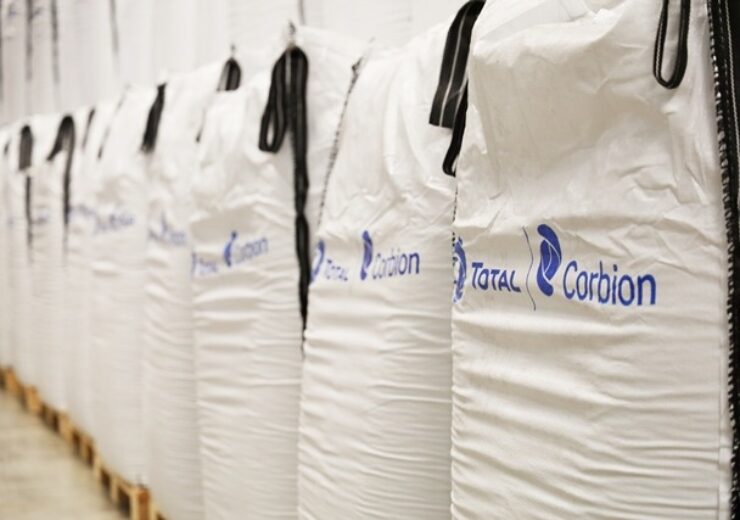Luminy PLA resins are biobased and made from annually renewable resources, offering a reduced carbon footprint versus many traditional plastics. At the end of their useful life, PLA products can be mechanically or chemically recycled

Luminy PLA ready to ship to customers. (Credit: Total Corbion PLA)
Total Corbion PLA’s plant in Rayong Thailand has, since its grand opening in 2019, earlier this summer reached a cumulative production volume of 100kT of Luminy® PLA. The plant is now running at name plate capacity of 75kT annually in order to meet the evergrowing demand for PLA bioplastics.
Luminy® PLA resins are biobased and made from annually renewable resources, offering a reduced carbon footprint versus many traditional plastics. At the end of their useful life, PLA products can be mechanically or chemically recycled. The biodegradable and compostable functionalities of PLA make it the material of choice for a wide range of markets and applications, including fresh fruit packaging, food serviceware, durable consumer goods, toys and 3D printing. Luminy® PLA can be a more sustainable alternative to established oil-based plastics that might not have as many end-of-life avenues available to them and many producers are making the switch to bioplastics for this reason.
Total Corbion PLA opened their first PLA plant, with 75kTpa capacity, in Rayong, Thailand in 2019. Since that time, they have also announced their intention to build a second PLA plant with 100kTpa capacity in Grandpuits, France which will be the first of its kind in Europe.
Simon Goldney, Plant Director at Total Corbion PLA, is proud of the achievement: “As with any new plant, the ramp-up phase is critical to reaching full capacity production, and we are extremely proud that our dedicated and passionate team in Thailand have reached this important milestone of 100kT cumulative PLA production.”
François de Bie, Senior Marketing & Supply Chain Director at Total Corbion PLA recognizes the need for PLA bioplastics in the market: “We see a rapidly increasing demand from our customers and partners, whether that be supplying existing supply chains or seeding and supporting new development projects. We’ll be striving towards achieving the next 100kT in an even shorter timeframe and continuing to enable the circular economy even further.”
Source: Company Press Release
